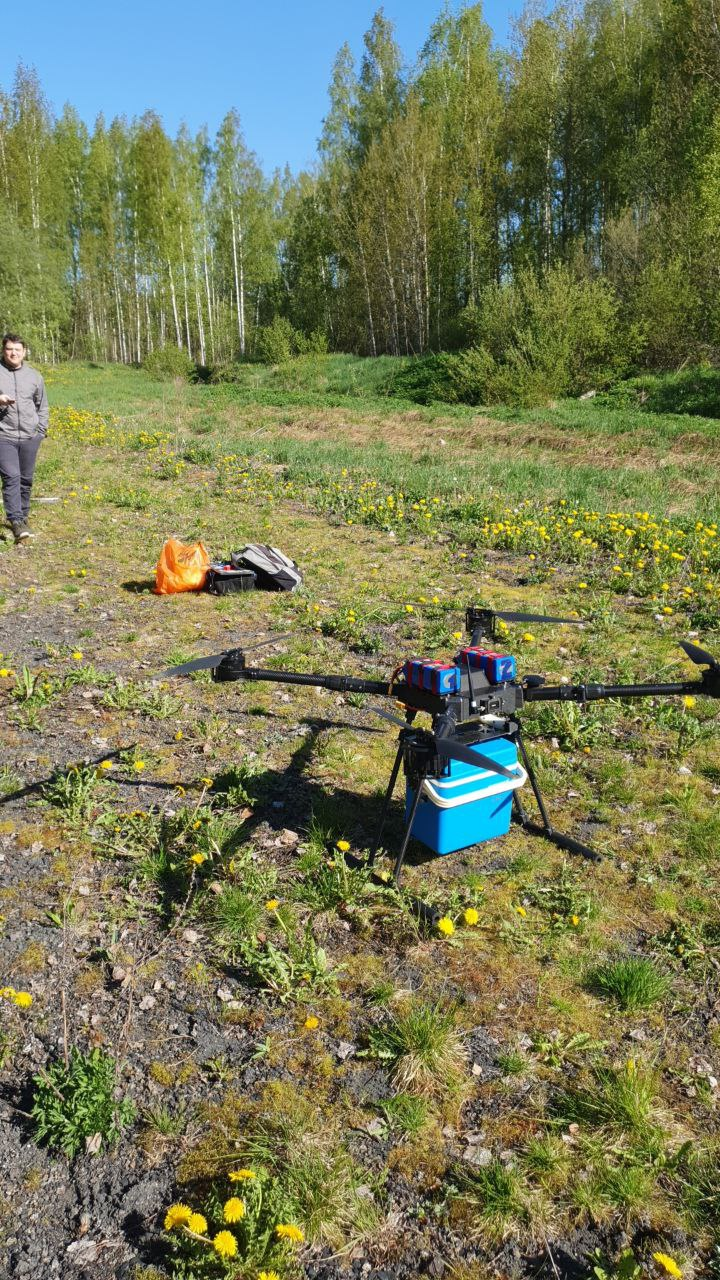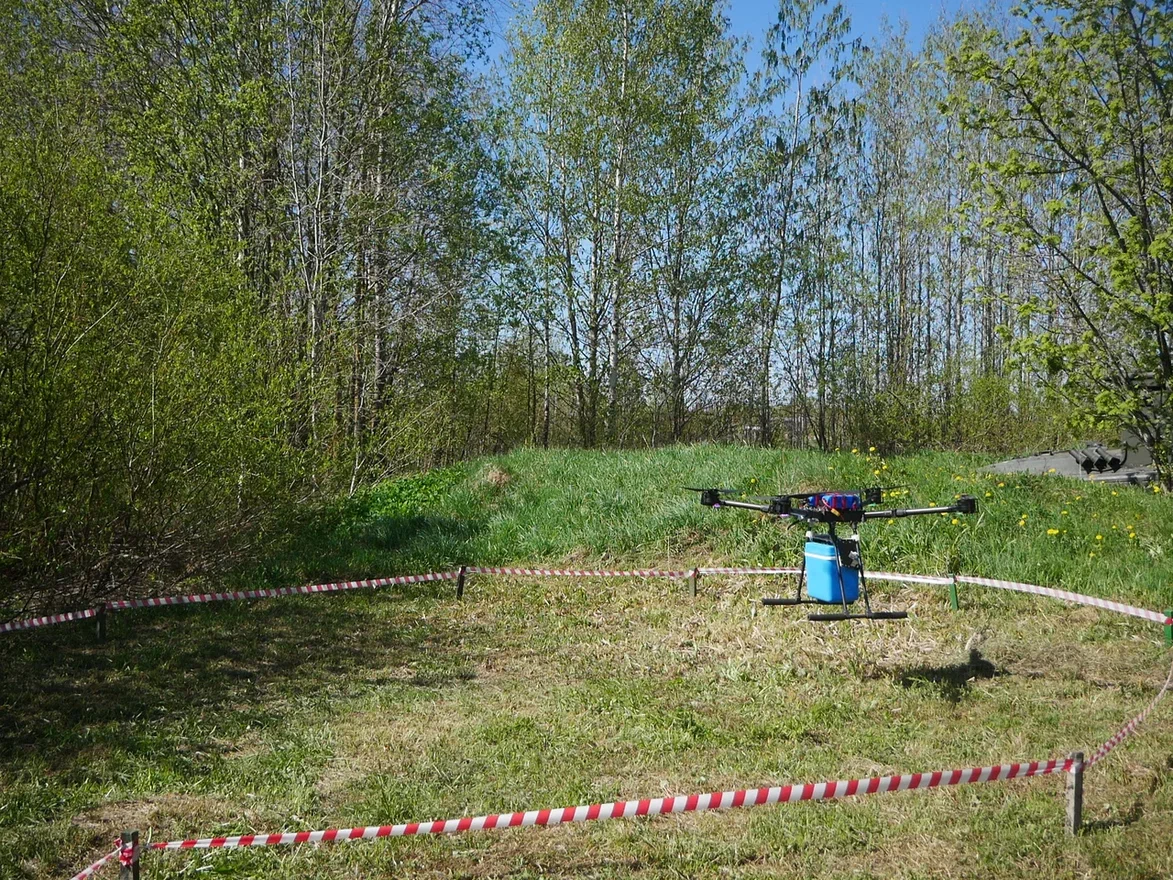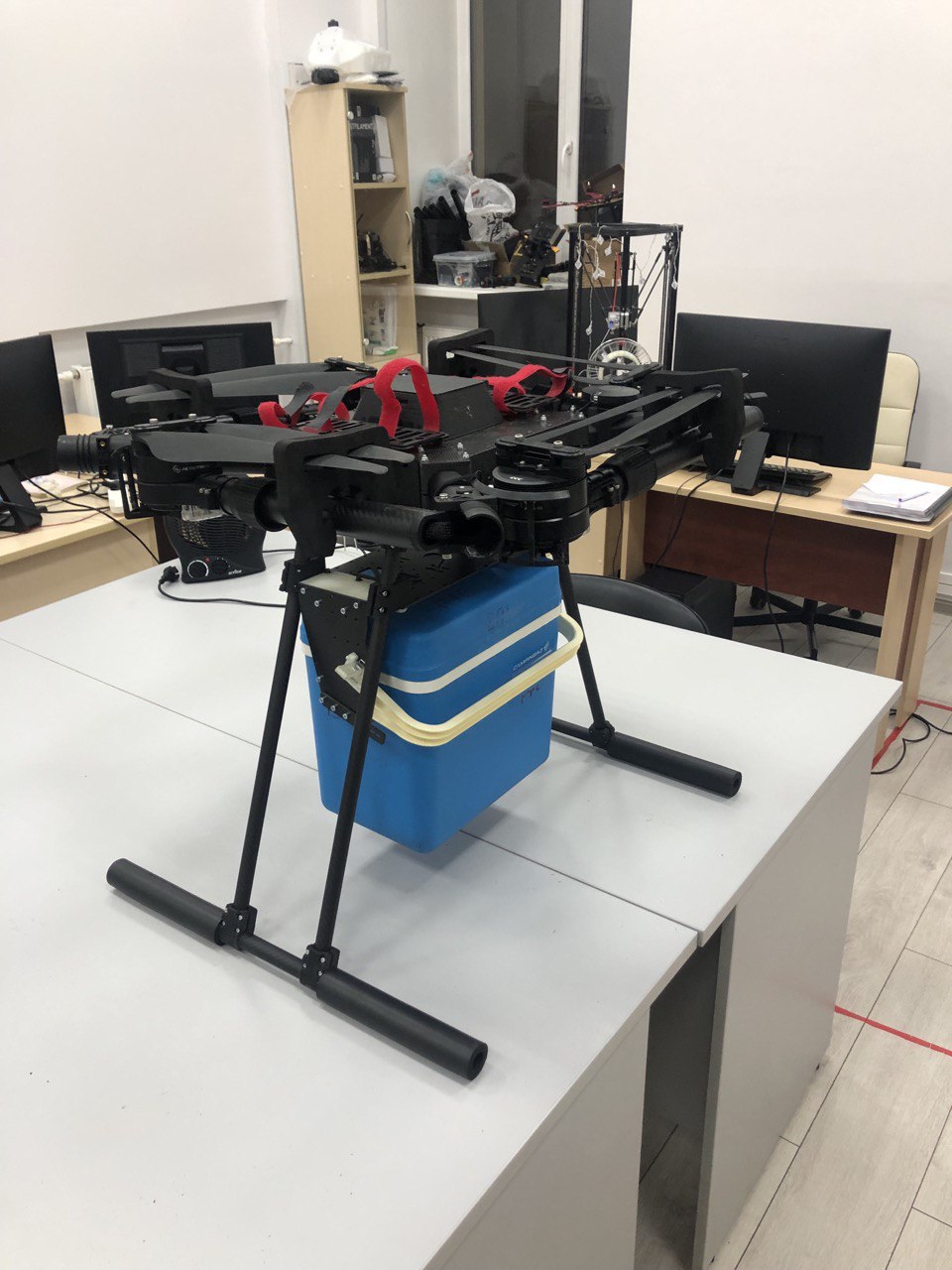The first test flights of a light unmanned aerial vehicle (UAV) of a multi-copter type intended for blood transporting have been run starting January 2022. To transport the samples of blood components the UAV of domestic production was used, whose maximum payload weight equals 15 kg; a container attachment system for the transportation of biological materials was also developed.
In a course of experiments on the blood bags’ delivery, the prospective aerial route for UAV of 5,600 m long was composed. And it is worth noting, that the test flights were run beyond settlements, away from power lines on private territory in the Leningrad region. The received results showed that the changes in the analysis of blood samples after transportation by UAV were negligible, and the blood components stayed suitable for the use in clinical practice.
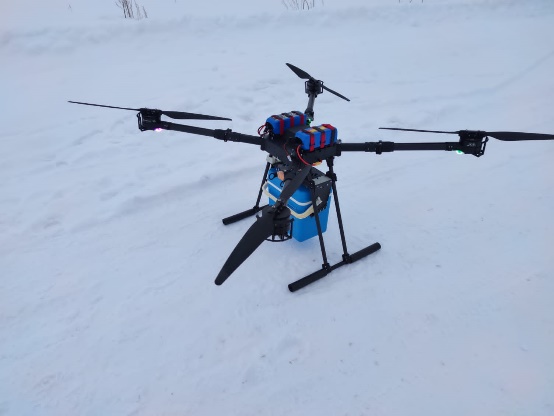
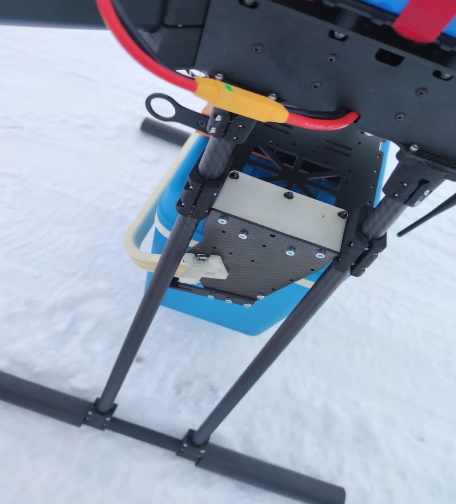
On May 25, at the basis for ensuring the educational process of the S.M. Kirov Military Medical Academy (VMEDA) located in Krasnoye Selo, the annual special tactical exercise "Ochag - 2022" was run, and researchers from the St. Petersburg Federal Research Center of the Russian Academy of Sciences (SPC RAS) took active part in it.
The Laboratory of Autonomous Robotic Systems of SPC RAS has arranged for a demo transportation of blood, intended for transfusion, by an unmanned aerial vehicle (UAV). Laboratory researchers Lebedev Igor Vladimirovich and Yanin Anton Pavlovich functioned in a capacity of operators for a light UAV of a short-range multi-copter type. This UAV is a specialized development of the Laboratory and includes a container attachment that ensures certain conditions for the transportation of blood and other biomaterials.
While completing the mission, UAV flew 2 km from the take-off point to the medical platoon in an autonomous mode, and the operators served as persons controlling the flight process. Note, that the flight altitude was 40 m.
The development prospects for the line associated with the automated transportation of special-purpose cargo by UAV look quite promising. The use of UAV in medicine will allow for saving people due to reducing the delivery time for blood components and medicines over long distances, to hard-to-reach places or to trauma centers within megalopolises. In the Russian Federation, the use of UAV in the healthcare system is not yet implemented. However, the results of field experiments run to assess the safety of using the blood components after their transportation by air revealed a high potential for the UAV at medical institutions.
This project was put into being due to support of the RSF grant No. 20-79-10325: "Development of principles and approaches to adaptive management of autonomous mobile cyber-physical systems in a changing environment".
